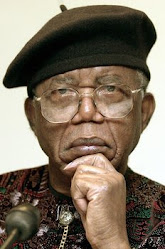 Another year, another Anthology from the Caine Prize for African Writing. Reading the 2015 Caine Prize Anthology was such a good experience I decided to review it every year in December. This year's winner of the Caine Prize for African Writing is Sudanese author Bushra al-Fadil with his short story, The Story of the Girl Whose Birds Flew Away. The 2017 Anthology contains five shortlisted stories and eleven stories from the annual writer's workshop. Let's begin!
Another year, another Anthology from the Caine Prize for African Writing. Reading the 2015 Caine Prize Anthology was such a good experience I decided to review it every year in December. This year's winner of the Caine Prize for African Writing is Sudanese author Bushra al-Fadil with his short story, The Story of the Girl Whose Birds Flew Away. The 2017 Anthology contains five shortlisted stories and eleven stories from the annual writer's workshop. Let's begin!2017's Shortlisted Stories
Lesley Nneka Arimah's (Nigeria) Who Will Greet You at Home opens this years collection. It's a beautifully written, moving and haunting tale that I fell in love with when I read her short story collection, What It Means When a Man Falls From the Sky, in April of this year. She announced on Twitter a few months ago that it will be adapted into a film and I honestly can't wait. FARAFINA is her Nigerian publisher and they released her work just last month. You need to read this short story and you need to read What It Means When a Man Falls From the Sky. Lesley's writing is a gift from the gods and I eagerly await her future offerings.
Chikodili Emelumadu (Nigeria) follows Lesley's lead with the haunting tale, Bush Baby. I've always been a little unsure about African tales like this but this tale is one to remember especially with that chilling last sentence. Love it!
The third story in this line up is The Story of the Girl Whose Birds Flew Away by Bushra al-Fadil (Sudan). I was desperate for this story to end. It was such a bore. I usually try to avoid spoilers and news about the Caine Prize so I can be surprised at the end of the year when I put together this review and so it wasn't even until I was done with this anthology that I discovered he was this years winner. His story was a waste of my time.
Arinze Ifeakandu (Nigeria) wrote God's Children Are Little Broken Things. The first time I saw that title was on Facebook via the literary blog, Brittle Paper, and I've been in love with that title just because of its literal translation. The title alone and its subject matter seemed to promise a good read and maybe a good cry but it delivered neither. After reading this tale about forbidden love set in one of the most dangerous places to love the same sex - Nigeria - I felt nothing. Nothing. Nothing. Zilch. That in itself is a feat. This story did not hit any spots whatsoever. The only thing I found remotely interesting was that it was set in the University of Nigeria, my old alma mater. This tale was very disappointing.
The Virus was written by Magogodi oaMphela Makhene (South Africa). I just couldn't get through this story. I couldn't. I'm a little embarrassed that I couldn't muscle through it but at the same time it's freeing to say I couldn't. Does that make any sense? I hate the title. After a few pages I checked the page count, skimmed through its pages and just moved on.
Writers' Workshop Stories 2017
Fidel, written by Ethiopia's Agazit Abate, was a tale I did not "get" or care for so I moved on after reading a few pages.
By the time I got to The Secret Language of Vowels by Abdul Adan (Somalia/Kenya) I had settled into a pattern. I read the first page just to get a "taste" of the story then finding it severely deficient I rush to count how many pages of prose I have to get through in order to be free. The Caine Prize 2017 has more dead stories than other collections so far. I gave up on this story too.
Lesley Nneka Arimah (Nigeria) rushed in to save me with the amazing, amazing, amazing, amazing, amazing short story Shells. I'm not even done with the first paragraph and I'm arrested by her storytelling. I even paused during my reading to Google "can birds eat crabs". Crabs are supposed to be impenetrable and threatening to a degree so I couldn't see how a bird could feast on it. Anyway, I digress. Lesley's writing is gorgeous. Her imagination is breathtaking and she "brings it" every. single. time. Every time she steps up she freaking delivers. I read Shells greedily, flipping page after page after page, lapping it all up as my heart pounded. The best stories always seem so short! When I got to the end of the tale I put down the collection and I wanted to cry. I honestly wanted to just bawl. So many things about that story moved me. It's sad, unforgettable and haunting. Why isn't this in her story story collection What Happens When a Man Falls From the Sky??? I wanted to reread it but I put it off for after I finished the anthology, a reward for completing this task. Much kudos to Lesley. I'm a fan.
Tendai Huchu (Zimbabwe) wrote An Unperson Stands on the Cracked Pavement Contemplating Being and Nothingness. If you follow this blog you've read my review of Tendai's Huchu terrific debut novel The Hairdresser of Harrare. I love Tendai but I didn't have any patience for this story. It’s boring and wordy like its title and so I hurried off to the next story.
My Mother's Project by Lydia Kasese (Tanzania) is an interesting read.
I felt This Is How the Heart Breaks into a Thousand Pieces and Then Folds into a Stone by Lidudumalingani (South Africa). The death of a child fractures a family and almost suffocates it. It's a good story.
Right off the bat The Goddess of Mtwara by Esther Karin Mngodo (Tanzania) is riveting, humorous. I enjoyed it.
The Storymage by Cheryl S. Ntumy (Ghana/Botswana) is terrific. I'm really impressed by this one. I'm hoping it gets adapted to film. Applause, applause, applause.
Five Is Not Half of Ten by Daniel Rafiki (Rwanda) is a good story too. I'm not crazy about the ending but it's good.
In That Little House in the Village by Zaka Riwa (Tanzania) two men hide in a house to do something that's forbidden. It's a good tale.
In Family Ties by Darla Rudakubana (Rwanda) estranged siblings come together for the sake of their father. I like it.
Most Memorable Stories
1) Shells by Lesley Nneka Arimah
2) Who Will Greet You At Home by Lesley Nneka Arimah
3) Bush Baby by Chikodili Emelumadu
I loved the opening story and the closing story was good enough but there were fewer hits and more misses in this collection. This was a great year for African writing and I can't wait to see what 2018 brings. Have a wonderful and fulfilling and Happy New Year!
READ:
The Caine Prize for African Writing 2015 Anthology | Book Review
The Caine Prize for African Writing 2016 Anthology | Book Review
[Image via CainePrize]





















